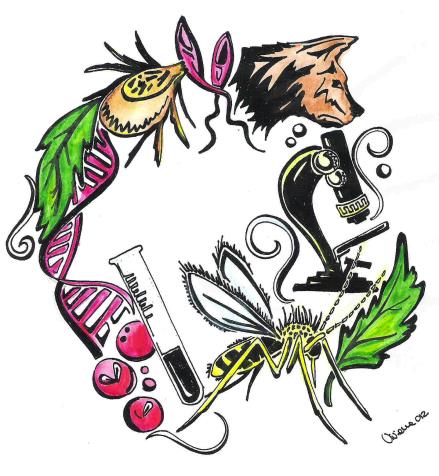Cari Colleghi e Amici,
Dear Colleagues,
We are pleased to announce the ninth edition of the Parasitology Summer Course (IX ParSCo) organized by the Parasitology Unit of the Department of Veterinary Medicine, University of Bari (Italy), with the support of the European Veterinary Parasitology College (EVPC) and of Parasites & Vectors. This residency course on
PARASITES, ARTHROPOD VECTORS AND TRANSMITTED PATHOGENS IN THE MEDITERRANEAN AREA will take place 3-10 June 2023 at La Casa di Caccia, Potenza, and Parco Regionale di Gallipoli Cognato, Matera, Italy.
Over the last years, more than 100 attendees from all continents have attended the ParSCo.
(see:
https://www.youtube.com/watch?v=qpZ6FV9KQVI&feature=youtu.be)
The ParSCo is an intense, one-week long course for parasitologists and post-graduate students working in the field of veterinary parasitology. This course is mostly focused on practical activities, with theoretical lectures making up less than 40% of the whole program. The program includes oral lectures and practical activities on collection, identification and diagnosis of parasites such as Leishmania infantum, TBPs, sand flies (e.g., Phlebotomus perfiliewi), ticks (e.g., Ixodes ricinus and Rhipicephalus turanicus), filarioids and eyeworms (Thelazia callipaeda). Participants will also attend clinical examinations of cattle and other domestic animals and sample collection from dogs for the diagnosis of arthropod-borne diseases. Attendees will also have the opportunity to participate in tick collection from the environment and clinical examination of dogs, cattle, sheep, goats and reptiles.
the deadline for the application is on 1 March 2023. Download the detailed program IX Parasitology Summer Course.
The course traditionally takes place in Basilicata, southern Italy, in the heart of the Mediterranean region https://www.youtube.com/channel/UCQaKY0wwTxOsz9QiPAqJ0tA
This region is fairly suitable for an optimal development of arthropods and thus for the life cycles of many parasites including those causing arthropod-borne diseases. A considerable diversity of parasites, inhabiting different microenvironments, can be found in Basilicata. This region has received significant attention from researchers, not only for its outstanding species richness, but also because it represents a potential model for other countries in the Mediterranean area.
We thank Elanco Animal Health, Boehringer Ingelheim, and SoIPa for their financial support.
We look forward to meeting you for an enjoyable IX ParSCo meeting and sharing with you our experience in the field of parasitology!
Domenico Otranto
Filipe Dantas-Torres
Emanuele Brianti
University of Bari, Italy








